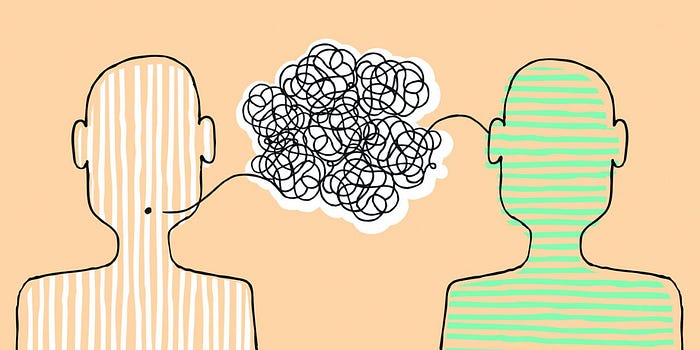Impact of Effective Communication on Self-esteem

Human beings can resonate with others only when they can resonate with themselves. Human beings are granted with an extraordinary gift of exchanging verbal interaction. The two basic needs and central part of human survival are — the need to form a self-concept and the need to communicate. Our self-concept is developed by the way we organize our belief system, thinking, processing self-relevant information and guiding social behaviour. Self-concept is made up of our social self, self-esteem, physical self, emotional self and self-knowledge.
At the most basic level, humans survive by being interdependent upon each other and by communication. Communication is the primary to figure out who we are and who we can be. The central core of the self-concept is self-esteem; self-esteem refers to our overall self-evaluation- the total of our self-schemas and possible selves. It relates to our sense of self-worth. Meaning, you understand and accept your competencies, shortcomings, strengths and dare to celebrate your strengths and recognize your weak spots to improve. Our self-esteem is determined by multiple influences, including roles we play, the comparisons we make, our social identities, how we perceive others appraising us, and our experiences of success and failure.
There are two types of self-esteem — balanced self-esteem vs imbalanced.
The way you feel about yourself today has partly to do with messages you receive from yourself; these messages help you feel good and bad about yourself. When you identify, explore and evaluate these messages, you can decide which you want to keep and which you don’t. You can learn new ways to talk to yourself that help you develop healthy self-esteem. People with low self-esteem often have problems in life — they make less money, abuse drugs and are more likely to be depressed. Self-esteem feelings are like a fuel gauge.
Communication is essential to our survival and happiness, and so is our self-concept. Communication with others allows us to meet the basic needs for survival and safety as well as more abstract human needs for inclusion, self-esteem, self-actualization and active participation in a socially diverse world. The ability to communicate and express effectively and appropriately boosts our self-confidence and makes us feel good about ourselves, eventually enhancing our self- esteem.
There are a lot of ways to make our communication more effective.
1. Develop a variety of communication skills — No single style of communication is best in all circumstances, with all people or for pursuing all goals. We need to learn a variety of communicative abilities. Besides, we also need to know the kinds of communication to use in specific interactions. Appropriately adapted communication, then, is sensitive to goals, contexts, and other people can boost our sense of self-worth. It helps us value our true self more, not only ours but also others. So this is a crucial step in building healthy self-esteem.
2. Dialogue with oneself— When we study the structure of our subjective experiences and have a belief that all behaviour has a structure, it helps in assisting effective communication, personal growth, change and learning. The internal dialogue here means intra-personal communication — the self-talk that we have 24/7 probably is so essential and has a massive influence on our self-esteem. The way we talk to ourselves determines how we perceive the world, and the way we even feel about ourselves. There is a running dialogue inside your head, an inner voice sending you messages that affect how you feel. When you have negative self messages, it tends to reduce your self-worth.
3. Acknowledging the double perspective — Every human being who ever lived came into this world with value and worth. There has never been an exception. There may be times when you believe that other people have more value and worth, and for some reason, you don’t. It is essential to understand that this belief is false, the ability to engage in dual perspective, which is understanding both our thoughts or feelings. When we adopt a double perspective, we understand how someone else thinks and feels about issues. If we try to be accepting of the beliefs and opinions of others, even if we disagree with them. Acknowledging them and trying to communicate efficiently also helps us have secure self-esteem.
4. Metacommunication — This means communication about communication. It can be verbal or nonverbal behaviour. Meta communication can increase understanding. It helps in preventing conflicts, internal and external. It helps in forming healthy relationships with oneself and others. Every little detail contributes to creating bigger social networks. It reduces performance anxiety and social anxiety and increases intrinsic satisfaction. It has several benefits along with uplifting, healthy self-esteem feelings, and is essential for successful social interaction.
5. Communication can be learned — It is a mistake to think that effective communicators are born, that some people have a natural talent and others don’t. During communication, we stay alert and edit our thoughts before expressing them. This alertness, in turn, helps protect us from our fears and dangers. It makes us feel safe and comfortable and gives us purpose and meaning.
READ THE FULL ARTICLE HERE.
BUDDY to share all your problems with (even anonymously, if you want) on the FeelJoy Mobile App available for all Android users.
